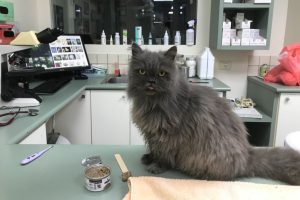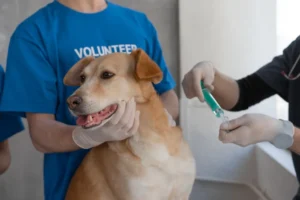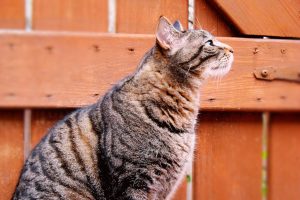Just like us, our feline friends need protection against harmful diseases. Here’s what you need to know about keeping your cat healthy through vaccinations.
Key takeaways:
- Vaccinating your cat is crucial for protecting their health and reducing the risk of disease transmission.
- Core vaccines for cats include feline panleukopenia, calicivirus, herpesvirus, and rabies, and non-core vaccines may be recommended.
- Vaccine frequency varies by age, health, and lifestyle and should be discussed with a vet.
- Cost may vary, but benefits outweigh the expense, and some vets may offer discounts.
This blog post explores the benefits of cat vaccinations, which cat vaccines are needed, how often to vaccinate your cat and the typical vaccination costs.
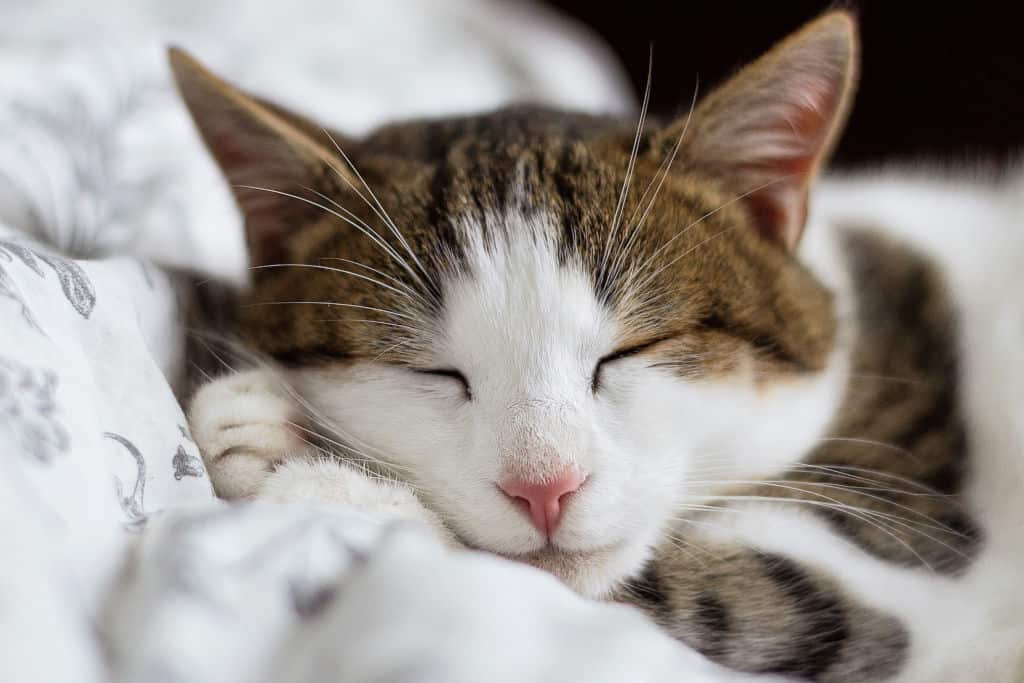
Benefits of vaccinations for cats
Vaccinating your cat is an integral part of responsible pet ownership and can provide numerous benefits to both your cat and your household. Here are some of the key benefits of vaccinating your cat.
Protection against preventable diseases
Vaccinations are essential to protect your cat against a variety of preventable diseases. These diseases can range from mild to severe, cause long-term health issues, or even be fatal.
Vaccinating your cat ensures they are protected from common feline illnesses such as feline panleukopenia, calicivirus, and feline herpesvirus. Exposing your cat to certain controlled viruses during vaccination can strengthen their body’s ability to recognize and combat these threats, essentially giving their immune system a training session.
By vaccinating your cat, you are providing them with the best defense against these diseases and keeping them healthy and happy for years to come.
Maintenance of good health
Vaccines work by stimulating your cat’s immune system to produce antibodies against specific diseases, which helps their body fight off infections if they are exposed to the disease in the future.
Vaccines also have a two-fold effect: they not only stimulate the immune response, but they also help in creating a ‘memory’ of the disease, ensuring rapid action during any future encounters with the real threat.
By keeping your cat up to date with their vaccinations, you are ensuring that they have a strong and healthy immune system, which helps them fight off illnesses more effectively. This leads to fewer trips to the vet, lower medical costs, and a healthier and happier cat.
Reduction of risk to other pets and humans
Some feline diseases, such as rabies, can be transmitted to humans and other animals, and vaccinating your cat against these diseases can help reduce the risk of transmission.
Additionally, vaccinating your cat can prevent the spread of disease among other cats in multi-cat households or in places where cats congregate, such as boarding facilities or animal shelters.
Remember, herd immunity isn’t just for people. When a majority of cats in a community are vaccinated, it creates an environment where the spread of disease is minimized, even protecting those few who aren’t immunized.
By vaccinating your cat, you are not only protecting them but also doing your part to promote the health and well-being of the broader feline community. Regular vet checkups are crucial in determining your cat’s health and immunity status.
What happens if you don’t vaccinate your cat?
Choosing not to vaccinate your cat can have serious consequences for their health and well-being. Without vaccinations, your cat is vulnerable to a range of preventable diseases that can lead to severe illnesses, long-term health problems, and even death.
Additionally, unvaccinated cats pose a risk to other animals and humans, as they can potentially transmit diseases to those around them, such as your dog. Choosing not to vaccinate your cat not only puts them at risk but also puts other animals and humans at risk as well.
What Vaccinations Does Your Cat Need?
After understanding the benefits of vaccinating your cat, the next important step is to know what vaccines they need. Not all vaccines are required, and it is crucial to understand the difference between core and non-core vaccines.
Core vaccinations
Core vaccinations are considered essential and protect against diseases that are highly contagious, have severe clinical symptoms, and can be transmitted to humans.
In the US, core vaccines for cats generally include the following:
- Feline panleukopenia (distemper): This vaccine protects against a highly contagious and often fatal disease that affects a cat’s gastrointestinal and immune systems.
- Feline calicivirus: This vaccine protects against a respiratory disease that can cause flu-like symptoms, fever, and painful mouth sores.
- Feline herpesvirus: This vaccine protects against a highly contagious respiratory disease that causes symptoms such as sneezing, runny nose, and fever.
- Rabies: This vaccine protects against the rabies virus, which is a fatal disease that can be transmitted to humans. It is required by law in many parts of the US.
Do indoor cats need all three of the core vaccines?
Non-core Vaccinations
Non-core vaccinations are optional and are recommended based on a cat’s lifestyle, environment, and individual risk factors.
For instance, a cat that spends time outdoors or has contact with other cats may require additional vaccines, such as the feline leukemia virus (FeLV) vaccine, a non-core vaccine in the US. Non-core vaccines include the following:
- Feline leukemia virus (FeLV): This vaccine is recommended for cats that go outside or have contact with other cats. FeLV is highly contagious and can be transmitted through close contact with infected cats. FeLV can cause various health issues, including anemia, lymphoma, and other cancers.
- Feline immunodeficiency virus (FIV): This vaccine is recommended for cats that go outside or have contact with other cats, as FIV is transmitted through bites from infected cats. FIV can cause severe health issues, including a weakened immune system and increased susceptibility to other infections.
Do indoor cats need non-core vaccines?
It is important to note that vaccination schedules may vary based on individual factors such as a cat’s breed, health status, and lifestyle. We recommend you discuss with your veterinarian what vaccines your cat(s) should get and when.
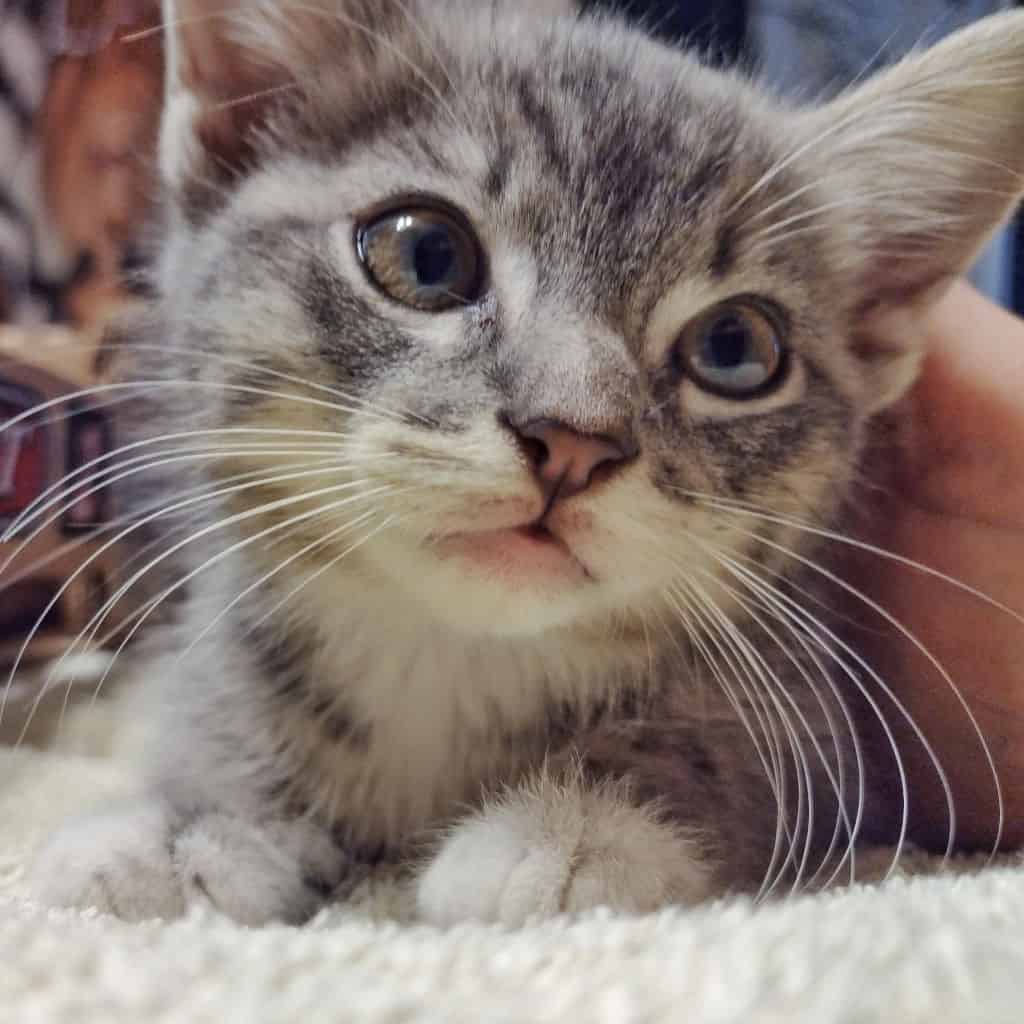
Recommended vaccines based on age, breed, and overall health
When it comes to age, kittens require a series of vaccines to protect them against diseases such as feline panleukopenia, calicivirus, and herpesvirus, as well as rabies.
In the US, a typical kitten vaccination schedule may include the FVRCP vaccine, which is a combination vaccine that protects against feline panleukopenia, calicivirus, and herpesvirus, and the FeLV vaccine if the kitten will have outdoor exposure.
Cat breed can also be a factor, as some breeds may be more susceptible to certain diseases or have different health considerations. For example:
- Persian cats may be more susceptible to upper respiratory infections and require frequent vaccination against feline herpesvirus and calicivirus.
- Siamese cats may be more susceptible to developing vaccine-associated sarcomas, which is a type of cancer that can occur at the site of vaccine injection. As a result, Siamese cats may require alternative vaccination schedules or vaccine types to minimize this risk.
- Burmese cats may be more susceptible to feline infectious peritonitis (FIP), a viral disease that can be fatal. While there is currently no effective vaccine for FIP, some veterinarians may recommend alternative vaccines to help reduce the risk of other infections that can make a cat more susceptible to FIP.
Overall health is also essential, as cats with underlying health issues may require special vaccination schedules or may need to avoid certain vaccines altogether. For example:
- Cats with certain immune system disorders may not be able to receive live-virus vaccines and may require killed-virus vaccines instead.
- Cats with compromised immune systems may require alternative vaccination schedules or alternative vaccine types to ensure their safety and efficacy. For example, cats with feline immunodeficiency virus (FIV) may require more frequent booster shots to maintain their immunity against other diseases.
- Cats with a history of severe vaccine reactions or allergies may need to avoid certain vaccines altogether or require alternative vaccine types to reduce the risk of an adverse reaction.
How Often Should Your Cat be Vaccinated
The frequency of core vaccines will depend on several factors, such as the cat’s age, health status, and vaccination history.
Generally, core vaccines such as feline panleukopenia, feline calicivirus, herpesvirus, and rabies vaccine are initially given to kittens in a series of shots and then boostered every 1-3 years depending on the cat’s individual needs and risk factors.
For example, the FVRCP vaccine (which includes the core vaccines for feline panleukopenia, calicivirus, and herpesvirus) is often given to kittens starting at around 6-8 weeks of age and then boostered every 3-4 weeks until they are around 16-20 weeks old. After that, the vaccine is typically given every 1-3 years, depending on the cat’s individual needs and risk factors.
Similarly, the frequency of non-core vaccines will depend on the cat’s age and health, but also the cat’s lifestyle.
- For FeLV, kittens are generally given a series of two vaccines starting at around 8-9 weeks of age, with a booster shot given a year later, and then the vaccine is typically given every 1-2 years for cats at risk.
- For FIV, kittens are typically given two vaccines, 2-4 weeks apart, starting at 8-9 weeks of age, then a booster is given a year later, and then the vaccine is typically given every 1-3 years for cats at risk.
The recommended frequency of FeLV booster shots can vary depending on the cat’s individual needs and risk factors, so discussing the best vaccination schedule with your veterinarian is essential.
Remember that there’s no need to vaccinate your cat if not necessary. Proper titer testing can help determine whether you cat actually needs a vaccination, or not.
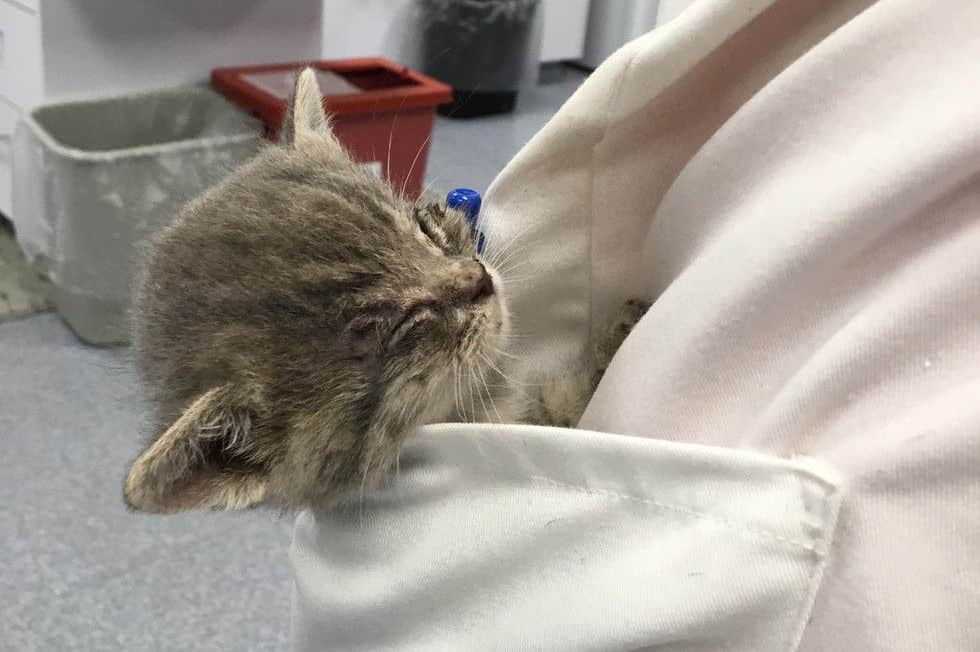
Cost of Cat Vaccinations
Vaccination is not expensive, but visits to the veterinarian may be. With a whole checkup, you’ll pay a regular checkup cost plus immunizations. Following immunizations (boosters) are often less expensive.
Generally, the initial series of vaccinations for kittens can cost between $100 and $200, including the initial set of vaccines and an examination. Annual booster vaccinations for adult cats can cost between $50 and $100 per year.
The average cost of cat vaccinations can vary depending on factors such as geographic location, the veterinarian’s office, the type of vaccine, and the number of vaccinations needed. Costs can also vary based on additional services such as blood tests, parasite screening, and preventative treatments.
Tips for cat vaccination costs
Some veterinarians may also offer vaccine packages or other discounts to help make the cost more manageable. You may get a wellness plan, a bundle of services, and preventive care that can include vaccinations, annual exams, dental cleanings, and other services for a fixed monthly fee.
Keep in mind that while vaccination costs may seem high, the benefits of vaccinating your cat far outweigh the cost. Vaccines can protect your cat from potentially life-threatening diseases, preventing costly medical bills in the future.
Because every veterinarian is unique, you may want to phone around and compare prices. The cheapest option isn’t usually the best option, and neither is the most costly.
Browse reviews and locate a location with positive feedback and signals where your cat will feel at ease.
FAQs
Is it acceptable to be late with cat vaccinations?
Being late with cat vaccinations is not advised, as it increases the risk of preventable diseases for your cat and others. Delayed vaccinations can result in unreliable protection, compromised immunity, and increases the risk of transmission to other pets and humans.
What happens if an unvaccinated cat scratches you?
If an unvaccinated cat scratches you, you may be at risk of contracting diseases that the cat may carry, such as cat scratch disease and rabies. Seeking medical attention is advised.
Is it necessary to deworm indoor cats?
It is recommended to deworm indoor cats. While indoor cats are less likely to be exposed to parasites than outdoor cats, they can still become infected through contaminated soil, insects, or other indoor animals. Deworming can also prevent the spread of parasites to other pets or humans.
Alex, a passionate animal lover, has experience in training and understanding animal behavior. As a proud pet parent to two dogs and three cats, he founded AnimalReport.net to share insights from animal experts and expand his knowledge of the animal kingdom.

